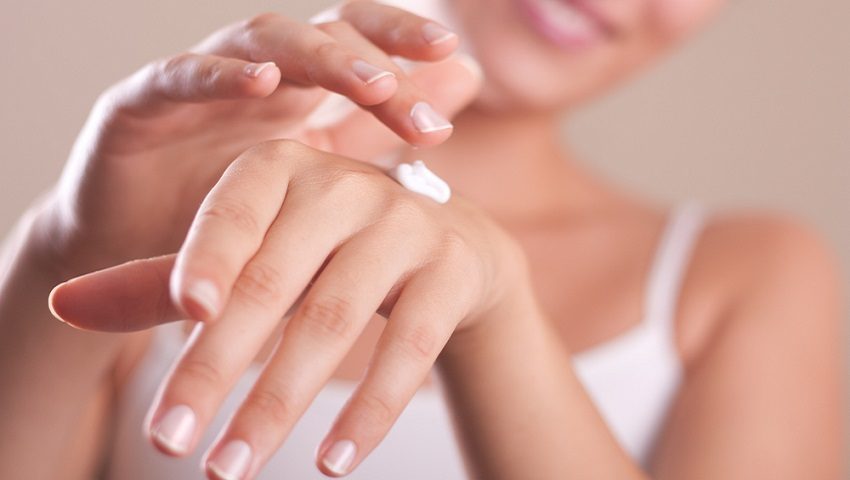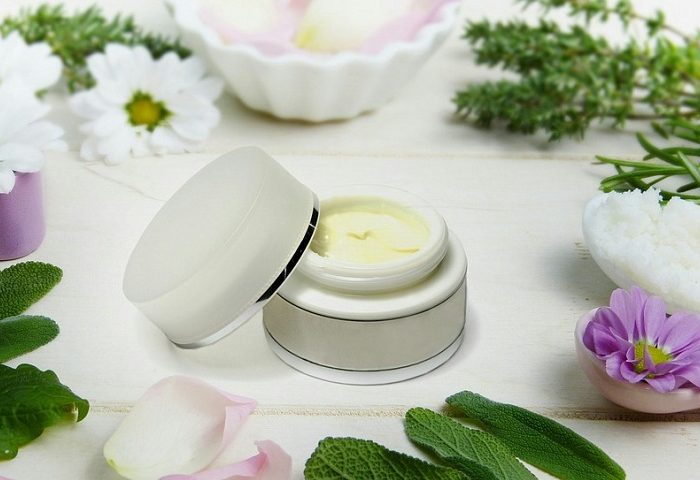Looking for a moisturizer but not sure where to begin? We hear you. After all, the skin care aisles are littered with various products. Some are for oily skin, others for dry skin. There is a hydrating moisturizer and there is also an antioxidant moisturizer. There are expensive options and there are more affordable ones. There are moisturizers that manufacturers claim will deliver instant results. There are some that have very little advertising. With so many moisturizers to consider, how does one go about making a decision? And, how does one sift through the endless stream of skin care products to find the best moisturizer?
Firstly, there is no single best moisturizer. There are multiple quality options. Secondly, there are several factors to consider to determine whether a moisturizer is one of the best or not. In order to help you get a good grasp on how to choose the best ones, we have outlined these factors in this article. From understanding the different types, your own skin type, what’s on the labels, and key things to look out for, we highlight the main contributing qualities of an exceptional moisturizing product.
What Type of Moisturizer Are You Looking for?
Moisturizers come in all shapes and sizes. They also come in a variety of thicknesses and each contains a unique formula. There are three main types of moisturizers that you will find on the shelves; creams, lotions, and ointments. But, what exactly is the difference? We will discuss their individual traits below.
Cream
Creams are thin moisturizing products. They combine 50 percent oil and 50 percent water. They predominantly hydrate and nourish the skin. They are most suitable for individuals with normal skin.
Lotion
Lotions are the lightest moisturizing products. This is due to the fact that they contain mostly water. The ratio is not defined, however, they will always contain more water than oil. As a result, they are ideal for individuals with oily skin. This is because of the fact that they don’t add much additional oil to the skin.
Ointment

Ointments are the thickest moisturizing products. They are great for dry or itchy skin as they optimally lock in moisture for extended periods of time. They generally contain 80 percent oil and 20 percent water. The best moisturizer products on the market can fall under any of these categories. No specific type is better than another. The difference is that your choice of moisturizer type will directly correlate to your skin type. Hence, certain moisturizers are better for certain skin types. We will discuss this in more detail below.
Is it Right For Your Skin Type?
Now that you know what it contains, you can determine whether it will be ideal for your skin type.
Moisturizer For Oily Skin
Oily skin retains moisture more effectively than other types. Hence, you will want to avoid excess oils as these will cause discomfort. Oil-free moisturizers that contain ingredients like hyaluronic acid and glycerin will work best.
Moisturizer For Dry Skin
If you suffer from dry skin, then a thicker cream or ointment should do the trick. This is because they lock in moisture for optimal results. Ingredients like shea butter, coconut oil, and jojoba oil should be found within the product you choose.
Moisturizer For Sensitive Skin
Sensitive skin is more prone to irritation. Subsequently, you are going to want to avoid any ingredients that contribute to skin sensitivity or cause allergic reactions. Your best bet is finding a product that contains hypoallergenic ingredients such as aloe or chamomile.
Moisturizer For Normal Skin
A neutral, light moisturizer will work if you have normal skin. Look out for something that is non-greasy. Otherwise, you are lucky in the fact that you can test out various products to find which one works best for you.
Moisturizer For Combination Skin
People who have combination skin have both normal skin and oily skin. The oil usually builds up around the forehead and nose. Just like those with normal skin, a light moisturizer will serve you best!
Read Every Moisturizer Label

So once you decide which type you are looking for, you can begin the next step for choosing the best moisturizer. That is, reading the labels. But, why is this so important? Let us explain.
Each skin type requires different ingredients, as we have already discussed. Consequently, you need to know if the ingredients will work with your skin type. But even more important is the fact that many manufacturers make false claims about their formulas.
You may stumble across terms like ‘instantaneously softens’ or ‘extremely fast absorbing’. These are enticing descriptors. The advertisers have done very well to position the product as a miracle cure. But, don’t believe everything they say. After all, the best moisturizer will support its manufacturer’s claims with a quality formula. In saying so, it is imperative that you understand the contents of the formula.
So, flip the product over and read the label before you commit to a purchase. The first five ingredients should catch your focus. Manufacturers list the ingredients in order of concentration from highest to lowest. Therefore, the first ingredients should be considered the main ones. These predominantly work towards the benefit of the product. They generally constitute 80 percent of the formula.
Therefore, if the first couple of ingredients are beneficial, and are not potentially toxic ones, then it could be one of the best moisturizer products. To confirm that it is, in fact, a high-quality formula, check to see if it contains clinically proven patented ingredients. The best moisturizer products contain up to 5 of these ingredients. They are well-researched and tested by dermatologists. As a result, they are more likely to deliver on the manufacturers claims.
If you cannot immediately identify the ingredients then rather wait before you purchase. Refer online to a quality site that outlines each ingredient in full. Check out this comprehensive database of the most widely used cosmetic ingredients to better understand which are beneficial and which could be toxic.
What makes up the best moisturizer and what should you avoid? We will discuss the key factors on how to choose an effective hydrating moisturizer.
The Best Moisturizer Should Not Contain Synthetic Fragrances
Fragrances are a primary contributor to skin irritation. They can also cause severe allergic reactions. Many dermatologists state that the use of fragrances can be harmful. This is due to the fact that they contain many complex chemicals which can react with the skin. Despite their reports, many hydrating moisturizer products still contain them. In fact, a study found that nearly 83 percent of moisturizers contain allergy-inducing fragrances. Click here to read more about it. You may smell like a peach but you certainly won’t be feeling very peachy!
When reading product labels, look out for the words fragrance, perfume or
If you are adamant on a moisturizer that has a pretty smell, then your best bet is going for a formula that includes essential oils. These are much safer and easier on the skin.
There are three main types of oils – saturated, monounsaturated, and polyunsaturated. Saturated and monounsaturated oils can be found in the best moisturizer products. While polyunsaturated oils are the worst choices for your skin.
The Best Moisturizer Will Contain Stable Oils

- Saturated Oils: Their chemical composition is very stable and they are more resilient to free radical attack. Furthermore, they have a longer shelf life than other oils.
- Monounsaturated Oils: These oils have one double bond in their fatty acid chains. As a result, they are less stable than saturated oils but still stable enough to be safe.
- Polyunsaturated Oils: Unfortunately most seed oils are polyunsaturated. This means that they have multiple double bonds. The more double bonds, the easier it is for the product to go off. Furthermore, the easier it is to experience oxidative stress. Therefore, resulting in signs of aging, such as wrinkles and fine lines.
The ingredients you will find in the best moisturizer include squalane, coconut oil, jojoba oil, shea butter, and cocoa butter to name a few. If a beneficial formula does contain polyunsaturated oils then ensure that they are very low on the list of ingredients. The other oils may stabilize these oils.
The Best Moisturizer Does Not Contain Petrolatum Derivatives
The goal of petrolatum derivatives is to smoothen the skin’s texture as well as create a barrier over the skin. Consequently, they may promote plumper skin and protect it against external aggressors. However, the downsides to these ingredients outweigh the advantages.
Because they contain such a large molecular size, they do not absorb into the skin or hydrate it. They merely serve as a barrier to lock in moisture. Furthermore, recent arguments state that they may not be entirely effective at retaining water. In fact, they may cause damage and contribute to water loss. There is also evidence that they clog the pores, dehydrate the skin, and negatively impact the development of healthy new cells. For these reasons, the best moisturizer products do not contain them.
Avoid any of these ingredients when searching for an effective moisturizer – mineral oil, paraffin oil, liquid paraffin, paraffin liquidum, liquid petroleum, petroleum oil, petrolatum liquid, and white oil.
A Preservative Can Be Found in the Best Moisturizer

While preservatives are not usually the most ideal ingredient in cosmetic products, they come in handy in moisturizers. Moisturizers that contain water require a preservative. If they do not contain one, then they risk bacterial spread and mold growth. This can hinder the product’s ability to deliver effective results. It may also lead to discomforting side effects and irritation. Therefore, ‘preservative-free’ is not always a good thing when looking for a hydrating moisturizer. That said, certain preservatives are more beneficial than others. We have outlined a few of the superior preservative ingredients to consider when reading the labels.
- Sodium benzoate, potassium sorbate
- Ethanol, grape alcohol, benzyl alcohol, witch hazel
- Rosemary, neem, tea tree oil
- Gluconolactone, Ethylhexylglycerin, triisostearyl citrate
- Dehydroacetic acid
There Should Not Be Any Chemical Sunscreen In The Best Moisturizer
There is no denying the benefit of sunscreen in protecting the skin from external aggressors. However, SPF moisturizers often contain harmful chemical sunscreen filters. These can have the following negative effects on the skin:
- Disrupting thyroid and reproductive hormones.
- Promoting DNA damage and producing free radicals.
- Causing rashes and other skin irritation.
For a safer sunscreen alternative, look out for zinc oxide and titanium dioxide.
Oils And Humectants Are Found In The Best Moisturizer Products

Stable oils and humectants are key components of the best moisturizer products. They usually combine an occlusive (prevents moisture loss by creating a barrier), an emollient (hydrates and nourishes the skin), and a humectant (attracts water to the skin). Examples of beneficial ones can be seen below:
- Occlusive: shea butter, olive oil.
- Emollient: squalane, jojoba oil.
- Humectant: glycerin, hyaluronic acid.
It is imperative that you find a product which combines the use of all three. This should prove to be one of the best moisturizer products on the market.
Very Few Detergents Are In The Best Moisturizer Products
Detergents, or emulsifiers, destroy protective oils. Hence, they contribute to dryness and irritation. This is extremely dangerous if you suffer from skin conditions. Allergic reactions to these ingredients are extremely common.
Emulsifying wax, cetyl alcohol, stearyl alcohol, PEG-100 stearate, glyceryl stearate, and sorbitan oleate should be avoided at all cost. It is very difficult to find a product that doesn’t contain one, but, they do exist. If you can’t find them, then ensure that the emulsifier is one of the last ingredients on the list.
To Sum Things Up
It’s not easy finding the best moisturizer. After all, there are so many quality products to choose from. That said, there are also many harmful ones. Before committing to a purchase, be sure to determine which moisturizer will work for your skin. Then, read the labels carefully and look out for the factors mentioned above. Following these rules will help you make a wiser purchase. With them, you can start enjoying beautiful looking skin in no time!





